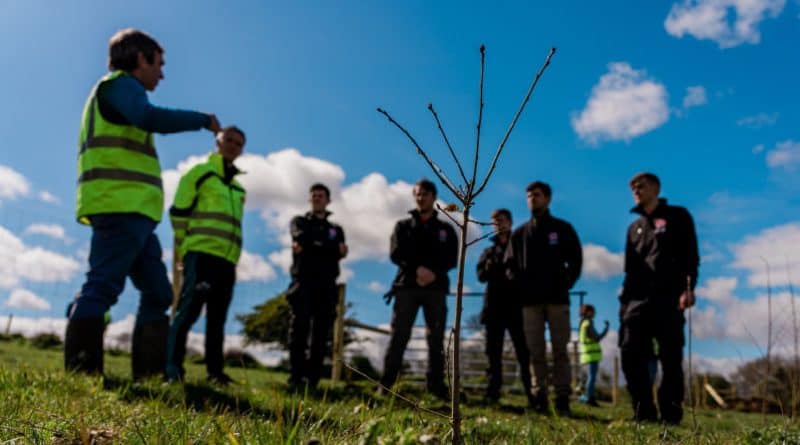Sisk hits first 2030 Sustainability Roadmap target
John Sisk & Son has announced that it has reached the first milestone in its 2030 Sustainability Roadmap by being certified a carbon neutral business.
Sisk achieved certification under the Achilles Carbon Reduce Programme in early 2021, by having their 2019 baseline and 2020 carbon footprint externally verified. As well as achieving a reduction in carbon emissions during 2020 Sisk has also offset their outstanding emissions through internationally verified carbon reduction projects.
In their 2030 Sustainability Roadmap – Building today, Caring for tomorrow – Sisk set ambitious targets on tackling climate change and air pollution, committing to 21 targets, including 50% of their vehicle fleet being electric by 2024 and an ultimate goal of achieving a carbon neutral status without offsetting by 2030.
During 2020 Sisk reduced carbon emissions by 19% against their 2019 baseline due to a decrease in carbon emissions from diesel in their company fleet.
This was achieved mainly by:
- use of effective travel plans,
- use of technology for virtual meetings,
- reduction in employee commuting miles,
- introduction of another 40 electric vehicles added to the fleet in 2020, and
- all electricity in the business now procured from renewable sources.
Currently work is also being done to combat the emissions from diesel on site, with the increased use of electric plant and alternative fuels such as Hydrotreated Vegetable Oil (HVO), which has been used as the single source of fuel for plant on their Northstowe project since 2019.
Steve Bowcott, Chief Executive Officer at John Sisk & Son said: “In our 2030 Sustainability Roadmap we set some ambitious targets, and I am delighted that we have achieved our first goal, achieving carbon neutral status by offsetting the emissions from our operations through international accredited offsetting schemes within 12 months of setting the target.
“We continue to actively work to drive down the carbon emissions which we produce as a business, and my hope is that through engagement with our clients and supply chain we can affect a paradigm shift in the industry, to help us achieve our overall target of becoming a carbon neutral business without offsetting by 2030.
“In addition to this we also commenced our tree planting initiative in March this year, with now over 100,000 planted to date, on track to achieve our target of planting 1.7 million native trees by our 170-year anniversary as a business in 2029.”
Sisk has partnered with South Pole to purchase carbon offsets for their outstanding carbon emissions. South Pole is a leading project developer with a portfolio of Gold Standard and Verified Carbon Standard programmes across the world, with the offsets divided between three carbon offsetting programmes:
- Wind Energy – India. The project provides green electricity to support India’s growing economy, and also brings benefits, such as jobs and infrastructure, to under-developed regions.
- Siam Cement – Thailand. By shifting to renewable biomass instead of fossil fuels, five Thai cement manufacturing plants can substantially reduce their carbon emissions – leading to environmental and socio-economic benefits for surrounding communities.
- Toyola Cookstoves – Ghana – This project distributes efficient cookstoves that require less wood and produce less smoke, alleviating deforestation and enabling healthier livelihoods.

